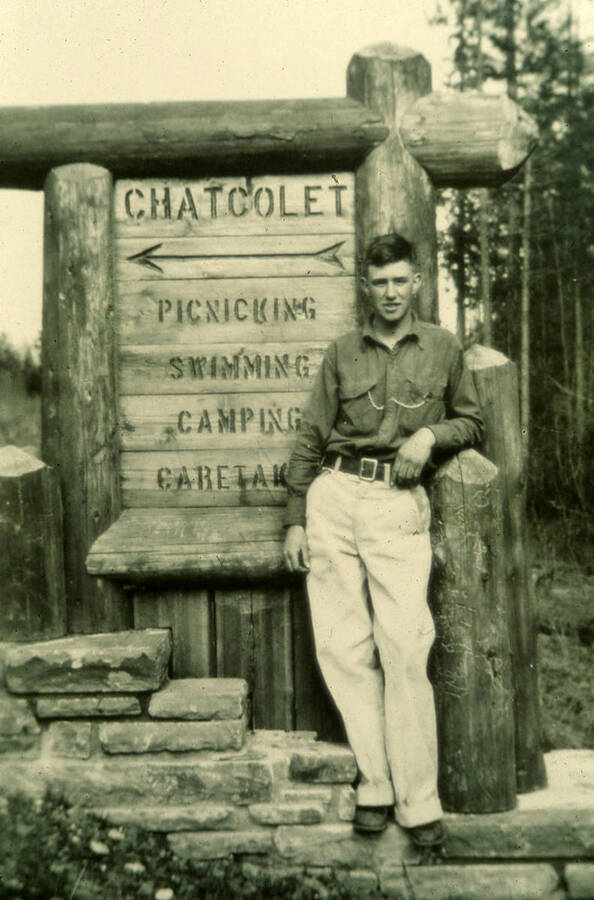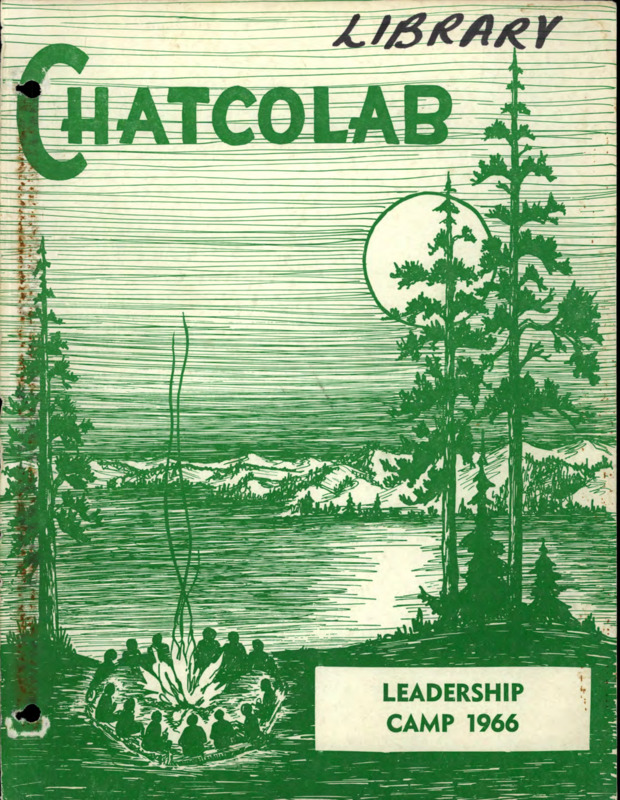Chatcolab NW Leadership Lab Collection
A collection of camp packets from the Chatcolab Northwest Leadership Lab
Contents: About Chatcolab | About the Collection | Sources | Tech
About Chatcolab (Northwest) Leadership Laboratory
Chatcolab is still active today and is an “equal-opportunity, affirmative-action, non-profit educational organization that develops leadership through recreation.” To learn more, visit their website.
Chatcolab is a non-profit organization that teaches leadership skills in a recreational setting. It was founded in 1949 by Don Clayton, who attended Black Hills Lab one year and was inspired to start a new lab in the Pacific Northwest. Black Hills Lab was an early supporter, contributing $58 and helping form a 6-person committee of people “from Oregon, Washington, and Idaho who were interested in people and recreation…” The committee secured an old Civilian Conservation Corps (CCC) site on Heyburn State Park near Lake Chacolet where the first lab was held between 11-18 May 1949, with 87 people in attendance. The lab was held at that location until 1975.1
The site, formerly a CCC camp from the 1950s, was in bad shape by the time they secured it for their first lab. Clayton “brought students from Moscow and many others in the area contributed much time, materials, and money to repair the camp so it could be used again. A wall was built between the kitchen and dining area and many colorful pictures were painted on the walls to enhance the building. The trays, carts, and many other things were brought from Farragut Naval Training Station on Lake Pend’Oreille.”2
During a board meeting in Moscow, Idaho, in October 1968, members discussed becoming an incorporated group and ultimately accepted the proposal. Chatcolab was officially incorporated on 15 May 1969 and received non-profit status in 1980.3
By 1969, however, attendees and others affiliated with the organization began to feel like the original purpose of the organization had gotten lost in duties rather than people. Clayton, the founder, “attended the October 1969 planning board meeting in Moscow, Idaho, to help re-evaluate the goals of Chatcolab.” “He reminded us that we learn through sharing, not merely in getting, and labbers need to feel the warmth and love of the group to be ready to learn and experience leadership. Plans were made to create an atmosphere where labbers were more willing to try things on their own. During the 1970 lab, in Chatcolab’s 21st year, the lab program was people-centered and activities were filled to suit needs, rather than an activity program first, filled in by people. This presented a challenge for labbers to use their ideas in self-discovery. Chatcolab 1972 saw the introduction of C.H.A.T. (College of Hidden Arts and Talents) classes allowing every labber an opportunity to give more of him/her self by sharing some ability.”4
On the 25th anniversary lab in 1973, 91 people attended Chatcolab.5
About the Collection
This collection contains the camp packet from each lab between 1949-2000. The packets detail program planning, activities, stories, menus, and recipes for the lab.
The collection also contains a document from 2014 (the organization’s 66th anniversary) reviewing the history and purpose of the organization.
The camp packets were donated and digitized in 2017. Since we only digitized bound materials, this collection does not contain any associated ephemera from the donor’s notebook.
Sources
-
“Chatcolab’s History,” Chatcolab, Inc., https://www.chatcolab.org/history/. (Archived: https://perma.cc/5PGG-XA99) ↩
-
Ibid. ↩
-
Ibid. ↩
-
Ibid. ↩
-
Ibid. ↩
Technical Credits - CollectionBuilder
This digital collection is built with CollectionBuilder, an open source framework for creating digital collection and exhibit websites that is developed by faculty librarians at the University of Idaho Library following the Lib-Static methodology.
Using the CollectionBuilder-CSV template and the static website generator Jekyll, this project creates an engaging interface to explore driven by metadata.


